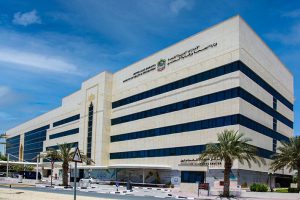DUBAI / WAM
The Ministry of Health and Prevention (MoHAP) announced it has successfully redesigned and restructured a series of key services, reducing their number by 50%, as part of Phase II of the “Zero Government Bureaucracy” programme. Launched by the UAE government, the programme aims to create a government free of unnecessary complexity, with faster, simpler, and more effective services that enhance quality of life and boost institutional efficiency.
The first package launched by the Ministry during this phase included licensing and accreditation services for healthcare professionals and facilities, which underwent a comprehensive redesign, cutting the number of services from 32 to just 16. The overhaul has significantly reduced processing times, improved operational efficiency, and strengthened alignment with the programme’s overall objectives. As part of the second phase, the Ministry adopted a clear, human-centric roadmap that places customer experience at its core. Key elements of the new approach include streamlining service procedures, reducing documentation, eliminating redundant requirements, and integrating digital systems to reduce the number of smart applications in use.
The Ministry also focused on minimising time, cost, and effort for service users while enhancing interoperability with partner entities to facilitate seamless data exchange and faster access to services. To assess the impact of these improvements, MoHAP conducted surveys and user experience studies, and recognised both the internal teams and proactive service users whose innovative suggestions contributed significantly to this qualitative leap in service delivery.
These efforts align with the programme’s target of achieving 100% elimination of digital bureaucracy by providing streamlined, complexity-free services and modernized systems. MoHAP stressed that it’s committed to supporting the UAE Government’s vision of building a more agile and proactive model, one that anticipates needs, offers innovative solutions, and delivers fast, efficient, and tangible results for every customer. Dr Mohammed Salim Al Olama, Undersecretary of the Ministry of Health and Prevention, stated that the Ministry’s success in completing Phase II of the “Zero Government Bureaucracy Programme” demonstrates the UAE leadership’s commitment to providing more efficient, high-quality, and simplified government services that save customers time, effort, and administrative burden.
“Our approach aligns perfectly with the government’s flexible and forward-looking model for service delivery,” said Dr Al Olama. “It supports sustainable development, strengthens the UAE’s global competitiveness, and is built on innovation, stakeholder engagement, and the empowerment of high-performing teams through advanced digital tools and AI integration. These improvements are to meet the expectations of citizens and businesses alike.”
He added, “The Ministry achieved remarkable results in the first and second phases of the programme by engaging various segments of society, partners, and internal teams. We adopted a proactive approach to enhance services, streamline procedures, and improve operational efficiency, making them more accessible and user-friendly. This marks a strategic shift in the Ministry’s operating model, aimed at continuously improving service delivery through ongoing measurement of customer and partner satisfaction, and providing a more integrated, simpler, faster, and more impactful experience.”
For his part, Abdullah Ahli, Acting Assistant Undersecretary for the Support Services Sector and Leader of the Zero Government Bureaucracy Team at MoHAP, emphasized the participatory nature of the Ministry’s approach. “Our service redesign efforts align with Phase II of the Zero Government Bureaucracy programme,” Ahli explained. “We adopted a co-design methodology through workshops that involve stakeholders from the healthcare sector and customers themselves. By analysing the user experience, we ensured the new services are smoother, less costly, and more results-oriented, while eliminating unnecessary procedures and requirements to maximise satisfaction and customer happiness.”
He further noted that the Ministry is in the process of launching additional packages of redesigned services across various sectors, following the successful completion of the testing phase and comprehensive user experience assessments. Such forthcoming service packages will include a wider range of priority services, thereby reinforcing the Ministry’s role in advancing national strategic objectives, accelerating the pace of sustainable development, and elevating the overall quality of life for all segments of society.
Phase II of the programme aims to achieve 100% zero digital bureaucracy by removing redundant digital steps, minimising the number of smart applications, and upgrading all digital government systems. It also involves the active adoption of artificial intelligence and a fundamental shift in the culture of government work, further strengthening the UAE’s competitiveness and solidifying its global standing.
 The Gulf Time Newspaper One of the finest business newspapers in the UAE brought to you by our professional writers and editors.
The Gulf Time Newspaper One of the finest business newspapers in the UAE brought to you by our professional writers and editors.
